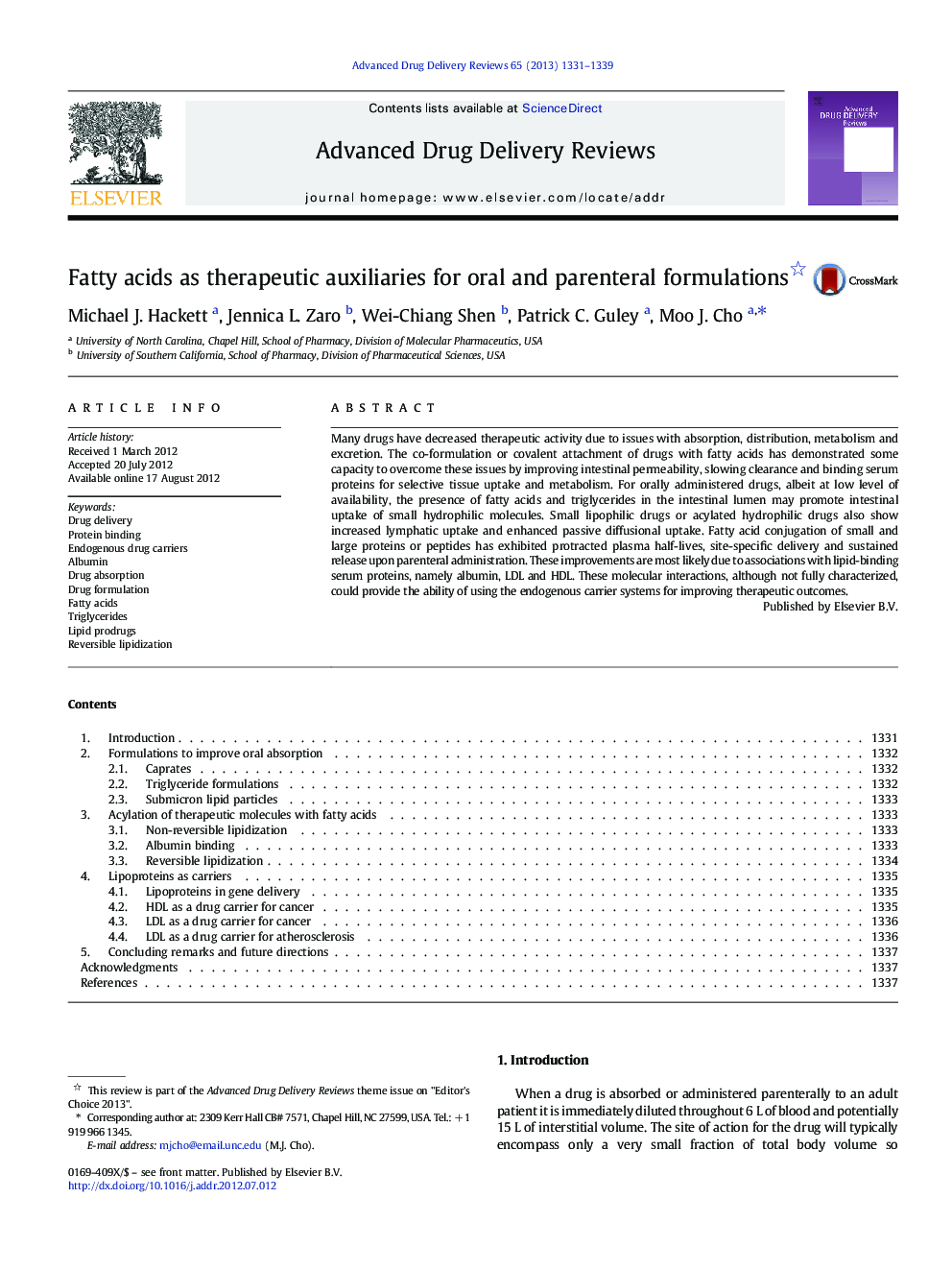| Article ID | Journal | Published Year | Pages | File Type |
|---|---|---|---|---|
| 2070957 | Advanced Drug Delivery Reviews | 2013 | 9 Pages |
Many drugs have decreased therapeutic activity due to issues with absorption, distribution, metabolism and excretion. The co-formulation or covalent attachment of drugs with fatty acids has demonstrated some capacity to overcome these issues by improving intestinal permeability, slowing clearance and binding serum proteins for selective tissue uptake and metabolism. For orally administered drugs, albeit at low level of availability, the presence of fatty acids and triglycerides in the intestinal lumen may promote intestinal uptake of small hydrophilic molecules. Small lipophilic drugs or acylated hydrophilic drugs also show increased lymphatic uptake and enhanced passive diffusional uptake. Fatty acid conjugation of small and large proteins or peptides has exhibited protracted plasma half-lives, site-specific delivery and sustained release upon parenteral administration. These improvements are most likely due to associations with lipid-binding serum proteins, namely albumin, LDL and HDL. These molecular interactions, although not fully characterized, could provide the ability of using the endogenous carrier systems for improving therapeutic outcomes.
Graphical abstractFigure optionsDownload full-size imageDownload high-quality image (104 K)Download as PowerPoint slide
